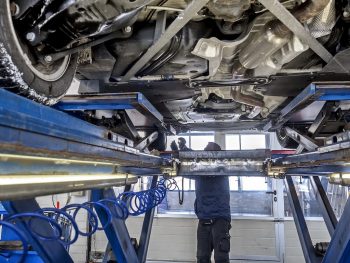Rise in fleet contract extensions laid bare in new data
Data showing the increased level of fleet contract extensions on company cars and vans has been published by epyx, backing anecdotes of a rising trend.

The epyx data shows there were some 10,000 additional routine services carried out on company cars/vans during April-August 2020 and a further 11,000 MOT tests
Analysis of the firm’s 1link Service Network service, maintenance and repair (SMR) platform shows there were some 10,000 additional routine services carried out during April-August 2020 – the height of the pandemic so far – compared to the same period in 2019.
The figures also show there were also a further 11,000 MOT tests for company vehicles, despite the Government’s six-month suspension of the requirement for MOTs.
The 1link data, which covers fleets operating some four million vehicles in total, backs up anecdotal reports that widespread contract extensions have been occurring.
Debbie Fox, commercial director at epyx, said: “These figures help to shine some light on what has been happening. Usually, there are very few maintenance actions concerning contract-extended vehicles on 1link Service Network but, in 2020, there have been significant numbers.
“The causes of this were probably twofold. On one hand, getting hold of new vehicles and having them delivered was very difficult during the period in question and, on the other, some fleets were undoubtedly extending contracts on existing vehicles, almost certainly in order to minimise future financial commitments while they took stock of their situation.”
The new data also shows the costs involved with contract extensions. The cost of the c.10,000 additional routine services was £1.6m, while the bill for the 11,000 MOT tests was around £550,000. Earlier this month, epyx warned that contract extensions were potentially a false economy, due to the SMR cost implications.
Fox added that it was interesting that while fleets legally did not need to maintain MOTs during this period, large numbers of fleets had still done so – presumably due to risk management considerations, thus ensuring vehicles still met minimum legal requirements remained important to operators.
The data also showed a considerable fall in mechanical and body repairs across nearly all of the fleets with which we work.
“This is to be expected as large number of vehicles were simply not being used to any great extent during the lockdown period,” Fox outlined.
She also said that the April-August period had been probably the most unusual that had been seen during 1link Service Network’s 20 year history – with a large section of users essentially immobile while others were operating frontline services around the clock.
“Now, things are back to pre-coronavirus levels in terms of the number of transactions going through the platform and their value but, like others across the fleet sector and beyond, we are viewing the next few months and the continuing impact of the pandemic with caution,” she finished.
CoronavirusCOVID-19epyxFleet contract extensionsfleet replacement cycles












